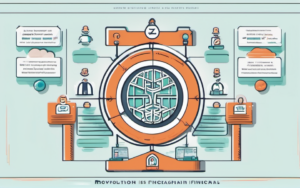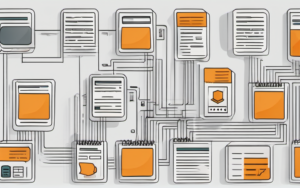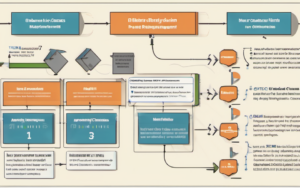Imagine a contract that enforces itself, automatically executing its terms without any human intervention. This is the power of smart contracts, revolutionary digital agreements that leverage blockchain technology to streamline and secure transactions. Smart contracts are self-executing programs stored on a blockchain, automating and verifying agreements between two or more parties.
What are Smart Contracts?
At their core, smart contracts are lines of code that define the rules and conditions of an agreement. These contracts are written in specific programming languages and stored on a blockchain, making them tamper-proof and accessible to all parties involved. They eliminate the need for intermediaries, reducing costs and increasing transparency.
The Role of Blockchain
Blockchain technology is the foundation for smart contracts. It’s a distributed ledger that records and verifies transactions across a network of computers. This decentralized structure ensures that smart contracts are immutable, meaning they cannot be altered or manipulated once deployed.
How Smart Contracts Work
Code Execution on the Blockchain
When a specific event or condition is met, the smart contract code automatically executes, triggering predefined actions. This could involve transferring assets, updating records, or triggering other processes. For example, a smart contract could automatically release funds to a supplier upon receipt of goods.
The Importance of Immutability
The immutability of blockchain ensures that smart contracts cannot be tampered with. Once deployed, the code remains unchanged, guaranteeing that the terms of the agreement are enforced as intended. This eliminates the risk of fraud or manipulation, fostering trust and accountability.
Transparency and Auditability
Because all transactions and contract code are publicly available on the blockchain, anyone can view the history and execution of a smart contract. This transparency promotes accountability and enables independent verification of the agreement’s terms.
Benefits of Smart Contracts
Increased Efficiency and Automation
Smart contracts automate processes, eliminating manual tasks and reducing the need for human intervention. This streamlines workflows, reduces delays, and improves overall efficiency.
Reduced Costs and Errors
By automating processes and eliminating intermediaries, smart contracts can significantly reduce costs associated with traditional contracts. They also minimize the risk of human error, ensuring accuracy and consistency in contract execution.
Enhanced Security and Trust
The immutability and transparency of blockchain technology make smart contracts highly secure. They eliminate the risks of fraud, manipulation, and disputes, fostering trust between parties.
Examples of Smart Contract Applications
Decentralized Finance (DeFi)
Smart contracts are revolutionizing the financial industry, enabling decentralized applications like lending, borrowing, and trading without the need for traditional intermediaries. They allow for peer-to-peer lending, automated trading, and other innovative financial services.
Supply Chain Management
Smart contracts can track the movement of goods throughout the supply chain, providing real-time visibility and enhancing transparency. They can automate payments, manage inventory, and ensure compliance with regulations.
Digital Identity and Voting
Smart contracts can be used to securely manage digital identities and conduct secure online elections. They can verify identities, record votes, and ensure the integrity of the voting process.
Challenges and Considerations
Security Vulnerabilities
While blockchain technology is secure, smart contracts can be vulnerable to security breaches if they are not properly coded or tested. Thorough audits and security best practices are essential to mitigate these risks.
Scalability and Performance
As the number of smart contracts and transactions increases, blockchain networks may face scalability challenges. This can lead to slower transaction speeds and higher costs.
Legal and Regulatory Frameworks
The legal and regulatory landscape around smart contracts is still evolving. Governments and regulators are working to establish frameworks to address issues of contract validity, liability, and dispute resolution.
The Future of Smart Contracts
Smart contracts are poised to transform various industries, from finance and healthcare to supply chain management and government services. As the technology matures and regulations evolve, we can expect even more innovative and impactful applications of smart contracts.
Key Takeaways
Smart contracts offer a revolutionary approach to agreements, automating processes, reducing costs, and enhancing security. By leveraging blockchain technology, they offer unprecedented transparency, immutability, and efficiency. While challenges remain, the future of smart contracts is bright, promising a more secure, efficient, and transparent world.




